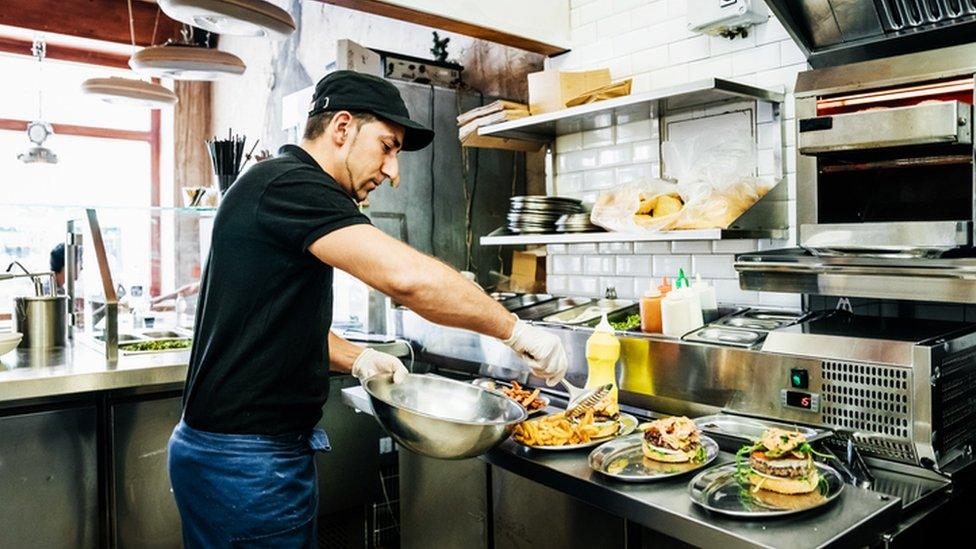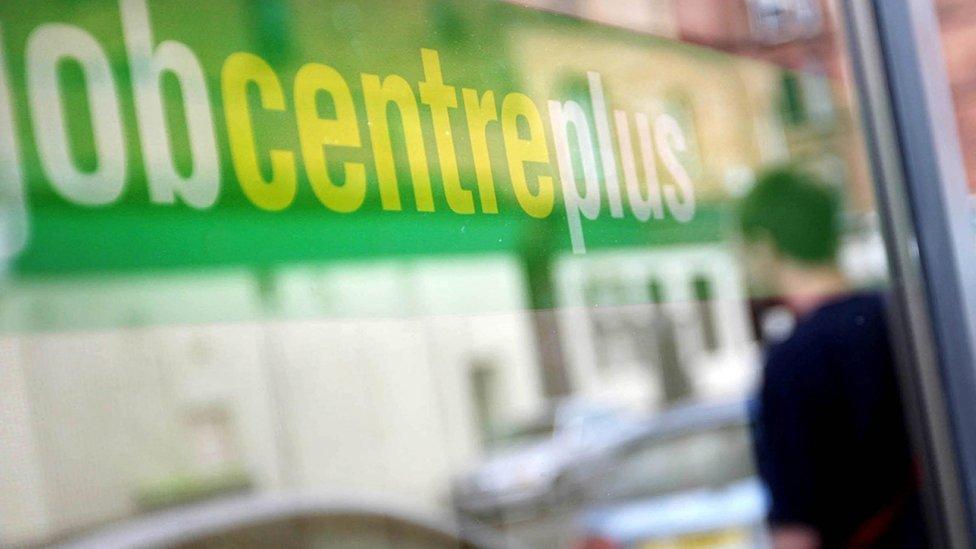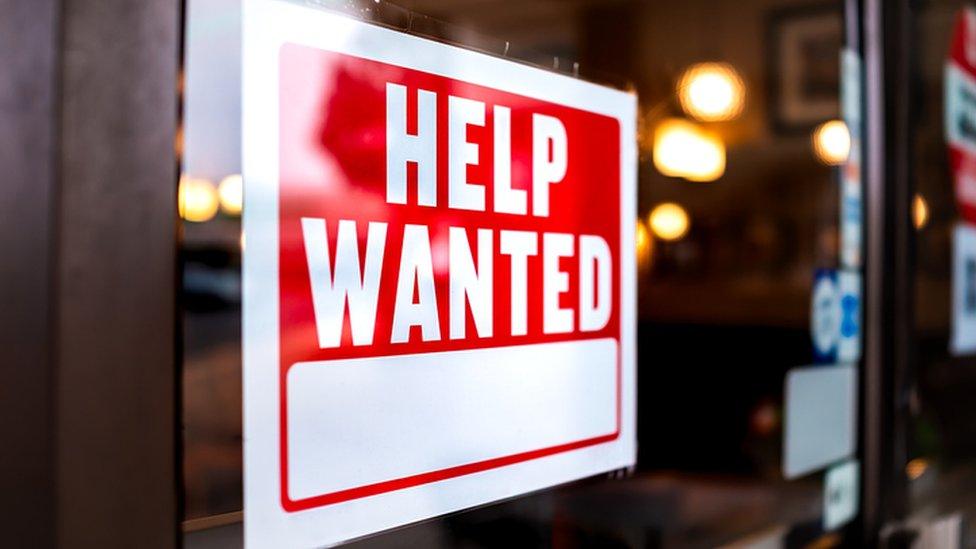Firms 'under pressure' to boost pay, says RBS report
- Published

Firms may have to boost their pay offers to keep and hire staff as they struggle to fill roles in the months ahead, according to a report.
An RBS survey of recruiters found growth in hiring activity slowed last month, despite strong demand for staff.
There was a steep decline in the supply of both permanent and short-term workers, and sharp vacancy growth.
Respondents attributed difficulties in finding candidates to strong demand, the coronavirus pandemic and Brexit.
Availability of permanent staff also dropped at a near-record pace.
This was despite salaries for permanent starters rising for the 11th time in as many months.
About 100 Scottish recruitment and employment consultancies took part in the survey.
Royal Bank of Scotland chief economist Sebastian Burnside said: "Following a survey-record uplift in hiring activity during the third quarter, the latest data point to a slight loss of momentum in the Scottish labour market.
"With the labour market running hot, supply and demand imbalances may limit firms' abilities to fill roles in the months ahead, while also pushing firms to up their pay offers in order to secure or even retain staff."

Meanwhile, a separate report by the Federation of Small Businesses (FSB) found rising overheads have led to a slump in Scottish business confidence.
More than three-quarters (77%) of nearly 170 firms surveyed in late September by the group said the cost of running their business had increased from this time last year.
FSB's Scottish Small Business Confidence Index fell to 1.2 points in the third quarter of 2021, from 20.5 points in the previous quarter.
It said the typical Scottish business was now less optimistic than the UK average, a reversal of the position seen over the summer.
'Punishing overheads'
FSB Scotland policy chairman Andrew McRae said: "Scottish business optimism bounced back over the summer but has slumped in the autumn. That's partly because the easing of Covid restrictions delivered a big confidence boost that's waned over time.
"However, punishing rises in business overheads are also taking their toll on the trading outlook. And with a rise in payroll taxes on the way, there's no end in sight."
One ice cream company has projected a 500% increase in the cost of energy for its flagship store in Hamilton, a change which it believes will cost them at least £50,000 a year.
David Equi, managing director of Equi's Ice Cream, said the unexpected extra costs had hit his plans to grow the business.
He said: "These spiralling energy prices make realising these ambitions so much harder. After surviving the Covid crisis, I'm frustrated that government isn't prepared to step up to protect local and independent firms."
- Published17 August 2021

- Published6 August 2021
